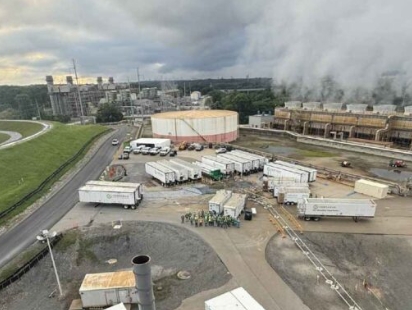
The 50% hydrogen blend reduces CO2 emissions by approximately 22% compared to using only natural gas. Tests progressed from 5% to 50% hydrogen blends. Last year, the turbine was upgraded from steam-cooled to air-cooled, incorporating J series combustion technology to support high hydrogen co-firing, enabling faster startups, greater flexibility, and lower maintenance costs. Mitsubishi Power provided comprehensive services, including engineering, hydrogen blending hardware, and risk management, partnering with Certarus for hydrogen supply and logistics.
Rick Anderson, senior vice president and senior production officer for Georgia Power, stated: “Natural gas serves a critical role in our generation mix, providing flexibility, baseload power and quick response to customer demand, and will continue to be an important fuel as we plan to meet the energy needs of a growing Georgia through a diverse portfolio of generation resources.” He added: “At Georgia Power, innovative testing such as this is just one way we help ensure we can deliver reliable and affordable energy for customers for decades into the future, and reduce our overall emissions.”
Mark Bissonnette, executive vice president and chief operating officer of Power Generation at Mitsubishi Power Americas, said: “It has been a privilege to partner with Georgia Power on this landmark project. Building on the success of our earlier tests, we have achieved a 50% hydrogen blend in an advanced-class gas turbine, showcasing the capabilities of our state-of-the-art technology.” The Plant McDonough-Atkinson, located less than ten miles from downtown Atlanta, powers up to 1.7 million homes with six M501G and M501GAC gas turbines and three steam turbines in a combined-cycle configuration.
Natural gas accounts for 40% of Georgia Power’s annual energy generation. The company is developing three new hydrogen-capable combustion turbines at Plant Yates in Coweta County, approved in the 2023 Integrated Resource Plan Update, and plans upgrades to ten turbines at Plant McIntosh to add 268MW of capacity, as proposed in the 2025 Integrated Resource Plan. Southern Company’s R&D organization provided technical consultation, focusing on low-carbon hydrogen solutions.